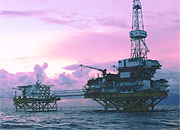In his speech the Head of Rosneft expressed an opinion that the dialogue in the energy area can radically change the level of partnership between Russia and Japan. Igor Sechin noted to the audience that, notwithstanding active investment actions of Japanese companies, the efficiency of these actions is limited: “The efficiency of Japanese investments (alternative to those in Russia) is mostly very low. From what we know in the last 3 yeast Japanese firms faced almost 600 bln yen of write downs (around 6 bln USD) because of bad investments in projects associated with hard-to-recover hydrocarbons in US and Canada, and also because of unsuccessful projects in the North Sea. And this had to be done in a period of high oil prices! De-facto IRR for international upstream projects of INPEX by the end of 2014 was 3.1% (Wood Macikenzie estimates). This is around 4 times less than a standard revenue ratio”.
In Igor Sechin’s opinion, Russia is a natural investment partner for Japan and such a forum such become the basis for a full-scale development of the dialogue: “in our case, when we mention the word power bridge we are speaking not only about the primary energy resources supplies. We take into account oil, oil products, LNG and other resources supplies, counter deliveries of machinery and also assets swap. This is the kind of power bridge I see many perspectives in, this kind of dialogue can offer possibilities for the development of our corporate cooperation. Such a bridge assumes a fundamental interdependence of energy systems and economies of both countries, de-facto it will form the basis for a strategic partnership between the countries.
Igor Sechin proposes to Japanese companies to expand the cooperation by forming integrated partnerships along all the process flow of the Company: “We proposed to our Japanese partners deals with total reserves of 6 bln barrels and with a resource base of 100 bln barrels” – said Igor Sechin. As an example of projects with elevated partnership potential Igor Sechin cited the joint development of the shelf of the Sakhalin island and the implementation of the Far-East Petrochemical Company, the development of the Zvezda shipyard. Igor Sechin expressed an opinion that by taking a decision to participate in such projects (the list is not limited to the mentioned in the presentation) Japanese companies will have a unique chance to become key technological partners of projects with unrivaled growth perspectives, which will form the basis for an explosive investment outcome.
Citing a distinguished Japanese business strategist Kenichi Omae. Igor Sechin reminded about the danger of a prolonged ‘low-pace growth’, being somewhat a soft stagnation of the economy. A solution to this problem can become international expansion and therefore cooperation with Russian companies is an optimal instrument in this context. Igor Sechin said that Russia already did the first step: “Being driven by the idea of diversification of key trade partners, we actively expand our upstream assets and logistics infrastructure in Siberia and the Far East of Russia. Oil deliveries from Russia to the Asia-Pacific region between 2005 and 2014 grew by 47.4 mln tones. In 2014 a total of 30 mln tones were delivered to China, 11.7 mln tones – to Japan, 10.1 mln tones – to South Korea.
In conclusion Igor Sechin expressed his hope to high-level cooperation of Japanese colleagues in this area: “As you say in Japan: ‘an unsown seed cannot spring’. In order to achieve a vigorous economic outcome in the future it is important to start working on joint projects today”.
The conference “Power bridge Russia – Japan” is organized by the Saskava Peace Fund and is being overseen personally by Nobuo Tanaka International Energy Agency Executive Director from 2007 to 2011. The mission of the event is the development of the dialogue between Russia and Japan in the energy area and the expansion of business contacts. The representative level of the participants is a reflection of the emphasis put to the conference by the Japanese business elite. The event was attended by Mitsui & Co. Chief Executive Officer Tatsuo Yasunaga, Tokyo Gas Vice Chairman Shigeru Muraki, Japan Bank for International Cooperation Managing Director Tadashi Maeda.
17 Декабря 2025 | среда | 12:50


